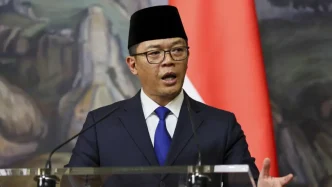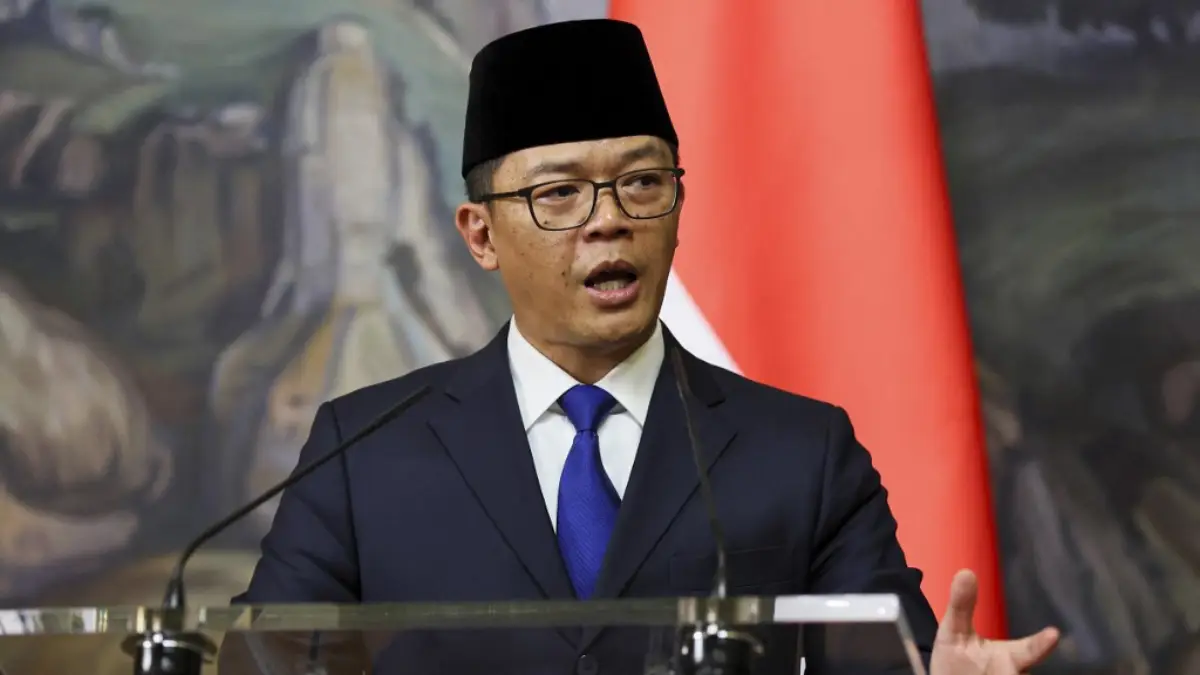Indonesia’s Foreign Minister Sugiono has issued a stark warning about the potential global consequences of Israel’s military actions in Gaza and Iran, cautioning that such moves could embolden other nations to flout international law under the guise of national interest. Speaking at a hearing of the House of Representatives Commission I, which oversees foreign affairs, Sugiono expressed deep concern over the escalating crisis in the Middle East and its possible ripple effects across regions like the Indo-Pacific.
A Dangerous Precedent
During the hearing in Jakarta on July 2, 2025, Sugiono highlighted how Israel’s ongoing offensive in Gaza and its recent bombing campaign against Iran could set a troubling precedent. “Maybe other countries in the world will now have the courage to break international law under the guise of protecting their national interests,” he stated, as reported by the state news agency Antara. His remarks underscore a growing unease among global leaders about the erosion of international norms in conflict zones.
The conflict in Gaza, which began with Hamas’s unprecedented attack on Israel on October 7, 2023, has already resulted in staggering casualties. According to Israeli official figures, the initial attack claimed 1,219 lives, predominantly civilians. In response, Israel’s retaliatory campaign has led to the deaths of at least 56,531 people in Gaza, also mostly civilians, as reported by the Hamas-run territory’s health ministry—a figure deemed reliable by the United Nations. The scale of destruction and loss of life has drawn widespread condemnation and raised questions about the adherence to international humanitarian law.
Adding to the volatility, Israel launched a significant bombing campaign against Iran on June 13, 2025, targeting military bases, nuclear facilities, and residential areas. The strikes, which killed top military commanders and atomic scientists, have further inflamed tensions in the Middle East. For Indonesia, a nation with a long-standing commitment to non-alignment and advocacy for peaceful resolution of conflicts, these developments are particularly alarming.
Risk of Regional Spillover
Sugiono emphasized that the crisis in the Middle East is not a distant issue for Indonesia or its neighbors in the Indo-Pacific region. He warned that the instability could “spill over” into other parts of the world, potentially disrupting diplomatic and economic ties. The Indo-Pacific, a region already navigating complex geopolitical challenges involving major powers like China and the United States, could face additional strain if Middle Eastern conflicts inspire similar disregard for international norms elsewhere.
Indonesia, as the largest Muslim-majority country in the world, has historically been vocal about the Palestinian cause, often condemning actions perceived as violations of sovereignty or human rights. Sugiono’s comments reflect a broader concern within the Indonesian government about the precedent set by unilateral military actions. If left unchecked, such behavior could undermine the rules-based international order that smaller nations, like those in Southeast Asia, often rely on for protection and stability.
International Law Under Threat
The core of Sugiono’s argument lies in the potential normalization of breaking international law under the pretext of national security. Israel’s justification for its actions—often framed as self-defense or the protection of national interests—could, in his view, provide a template for other states to justify aggressive policies. This is a particularly sensitive issue for Indonesia, which has faced its own challenges with territorial integrity and regional disputes, such as those in the South China Sea.
International law, including frameworks like the United Nations Charter, is designed to prevent such escalations by setting clear boundaries for state behavior, especially in times of conflict. However, when powerful nations appear to act with impunity, it risks creating a domino effect. For instance, countries embroiled in territorial disputes or internal conflicts might cite similar justifications to bypass diplomatic solutions, leading to increased global instability.
In the context of Southeast Asia, where historical grievances and border issues persist, the implications are significant. Nations in the region, including Indonesia, have often turned to multilateral forums like the Association of Southeast Asian Nations (ASEAN) to mediate disputes and maintain peace. Sugiono’s warning serves as a reminder of the fragility of these mechanisms when global powers set conflicting examples.
Indonesia’s Diplomatic Stance
Indonesia’s response to the Middle East crisis also reflects its broader foreign policy principles, often summarized as “free and active” (bebas aktif). This doctrine, rooted in non-alignment, commits Indonesia to pursuing an independent path while actively contributing to global peace. Sugiono’s recent engagement with Russia’s Foreign Minister in Moscow on June 17, 2025, as captured in images from the joint press conference, illustrates Jakarta’s efforts to maintain dialogue with major powers amid rising tensions.
While Indonesia has not directly mediated in the Middle East conflict, it has consistently called for ceasefires and humanitarian assistance in Gaza. The government has also supported international efforts to hold all parties accountable under global legal standards. Sugiono’s latest remarks at the parliamentary hearing reinforce this stance, positioning Indonesia as a voice of caution against the unchecked use of military force.
Global Implications and the Indo-Pacific Nexus
The potential spillover of Middle Eastern instability into the Indo-Pacific region is not merely theoretical. The region is a critical hub for global trade, with key maritime routes like the Strait of Malacca facilitating the movement of goods and energy supplies. Any disruption—whether through heightened military tensions or economic fallout from conflicts elsewhere—could have far-reaching consequences for countries like Indonesia, which rely heavily on these corridors for economic stability.
Moreover, the Indo-Pacific is home to diverse political systems and ongoing disputes, from the South China Sea to internal conflicts in Myanmar. If Sugiono’s fears materialize, and states begin to mirror Israel’s approach by prioritizing national interest over international law, the region could see an uptick in unilateral actions. This might include increased militarization or preemptive strikes, further complicating efforts by organizations like ASEAN to maintain regional cohesion.
Energy security is another concern. The Middle East supplies a significant portion of the world’s oil and gas, and prolonged conflict there could lead to price volatility, directly impacting economies in the Indo-Pacific. For Indonesia, which is both a producer and consumer of energy, such fluctuations could strain domestic budgets and exacerbate inflationary pressures.
A Call for Collective Action
Sugiono’s warning is, at its heart, a call for collective action to reinforce international norms. While Indonesia alone cannot resolve the Middle East crisis, it can advocate for stronger multilateral responses through platforms like the United Nations and ASEAN. By raising the issue in domestic forums like the House of Representatives, Sugiono signals that this is not just a foreign policy concern but a matter of national interest for Indonesia.
The Foreign Minister’s comments also serve as a reminder of the interconnectedness of global conflicts. What happens in Gaza or Iran does not stay confined to those regions; the reverberations are felt in Jakarta, Hanoi, and beyond. For smaller nations, the erosion of international law represents an existential threat to their ability to navigate a world often dominated by larger powers.
Looking Ahead
As the situation in the Middle East continues to evolve, Indonesia’s role as a regional leader and advocate for international law will be closely watched. Sugiono’s remarks underscore a critical juncture: will the global community rally to uphold the principles that govern state behavior, or will the precedent of unilateral action take root? For now, the answer remains uncertain, but the stakes for regions like the Indo-Pacific could not be higher.















